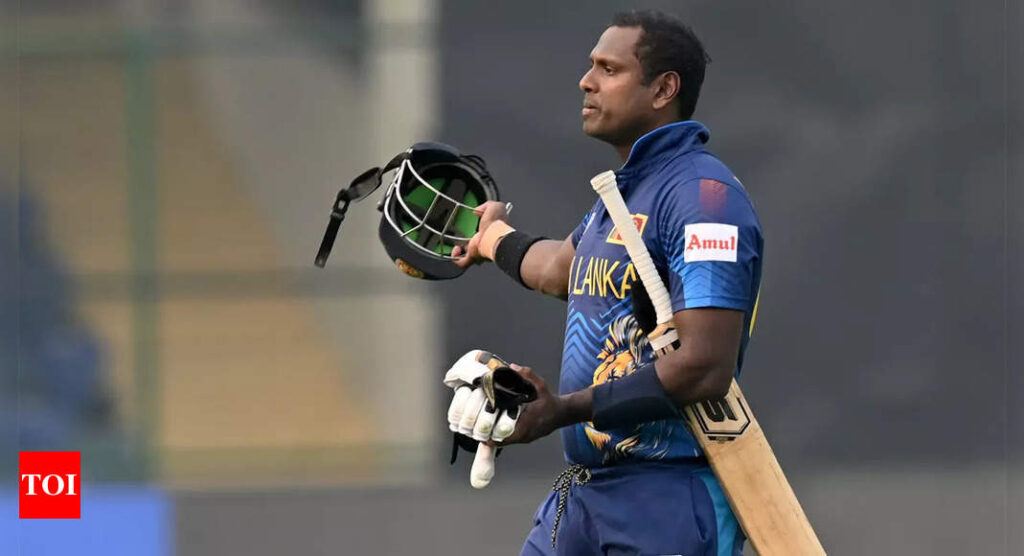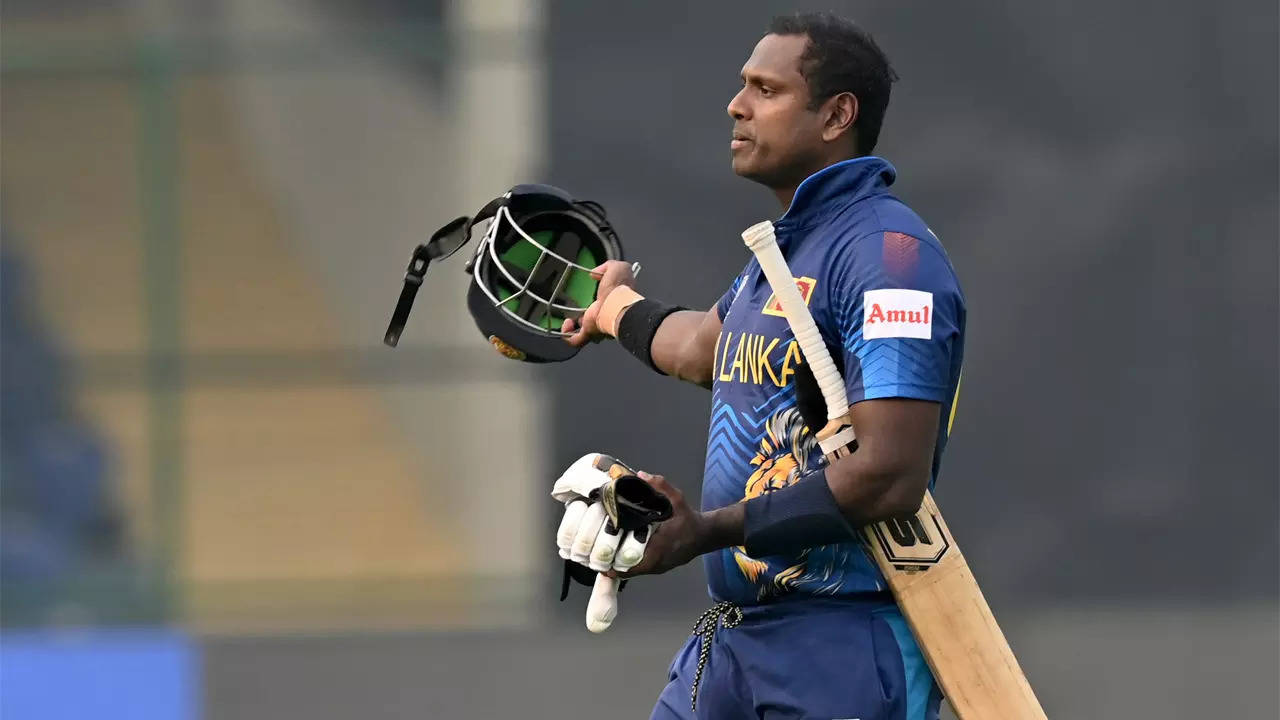[ad_1]
Mathews’ infamous and first-of-its-kind dismissal at the 2023 World Cup match between Sri Lanka and Bangladesh last Monday at the Arun Jaitley Stadium in New Delhi created a huge stir in world cricket.The former Sri Lanka captain was dismissed timed out, after an appeal by Bangladesh skipperShakib Al Hasan, when he failed to face the next delivery after the dismissal of Sadeera Samarawickrama. Hugely upset at the call, Mathews later criticised the fourth umpire while labelling Shakib’s act as “disgraceful”.The MCC, though, has backed the match umpires for giving the decision in favour of Bangladesh.
In a statement on Saturday, the MCC pointed out that as per the ICC’s ODI Playing Conditions, the incoming batter should be ready to face the ball within two minutes of the dismissal or retirement of the previous batter.
“The key part of the Law, on this occasion, is that the batter must ‘be ready to receive the ball’. Being on the field, or even at the wicket, is not enough to avoid being Timed out. The batter must be in position for the bowler to be able to bowl inside the allotted time. The umpires determined that Mathews was not ready to face the ball within that two-minute allowance. He subsequently suffered an issue with his helmet, causing further delay,” the MCC stated.
The MCC ruled that Mathews had not informed the umpires about the helmet change within the two-minute allowance. “Had the umpires been informed of a significant, justifiable, equipment-related delay within the two-minute allowance, they could have treated it as a new type of delay (as they would when, for example, a bat breaks), possibly even calling Time, allowing for a resolution of that delay without the batter being at risk of being Timed out. However, it is important to note that both umpires determined the delay came after the two minutes had elapsed, and that Time had not been called before the appeal,” the MCC stated, before explaining the circumstances of the dismissal and the umpires’ stand on it.
Angelo Mathews’s ‘timed out’ dismissal triggers debate: Playing by the rules or lacking sportsman spirit?
“Having taken more than 90 seconds to get to the 30-yard circle, Mathews appeared to notice that he was short on time, jogging the final few yards to the wicket. His helmet malfunction has since been shown to have taken place 1 minute and 54 seconds after the previous wicket had fallen. He had not, at this stage, begun to take guard and was not close to being in a position to receive the ball. When the helmet broke, it appears that Mathews did not consult with the umpires, which a player would be expected to do when seeking new equipment. Rather, he just signalled to the dressing room for a replacement. Had he explained to the umpires what had happened and asked for time to get it sorted out, they might have allowed him to change the helmet, perhaps calling Time and thus removing any possibility of being Timed out.”
Giving it’s final ruling in the case, the MCC stated that the umpires “correctly gave Mathews out.”
“Given that Time had not been called, and that at the time of the appeal more than two minutes had elapsed, the umpires correctly gave Mathews out. In fact, there was no other action for the umpires to take within the Laws of Cricket,” stated the MCC.
Explaining why a ‘Timed Out law is required in cricket, the MCC stated: “Without this law, a batter could waste time at the fall of a wicket, choosing not to come to the crease in a timely manner. This is particularly problematic in timed cricket, when the light may be fading and a draw a favourable result, but it is also relevant in limited overs cricket, where the fielding side is often punished for slow over-rates.” Even if the intent is not specifically to waste time, a law is required to keep the game moving and prevent significant delays between wickets.”
The MCC noted that the ‘Timed Out’ law had never previously been invoked in international cricket, and only six previous times in first-class cricket, which meant that there was no great need to change it at this point. Regarding the ‘Spirit of Cricket’ debate that the dismissal triggered, the MCC felt that “the Spirit of Cricket is not owned by any one player, country or culture and that the game is played with subtle differences right across the globe. At the Spirit of Cricket’s core are the values of respect and fair play, yet its application is interpretive, as issues considered to be totally reasonable in the eyes of some may be deemed unacceptable to others.”
Lanka’s U-19 WC fate hangs in balance
Will Sri Lanka be able to stage the Under-19 World Cup in January-February (January 13 to February 4) after it’s cricket board, Sri Lanka Cricket, was suspended by the International Cricket Council on Friday? The million dollar question, TOI understands, will be answered at the ICC Board meetings on November 20 & 21st in Ahmedabad.
[ad_2]
Source link











More Stories
Australia exposed India’s little chinks in World Cup final: Sanjay Manjrekar | Cricket News
Rahul Dravid, BCCI engage in discussion but board inclined towards new coach | Cricket News
IPL 2024: Delhi Capitals retain Prithvi Shaw | Cricket News